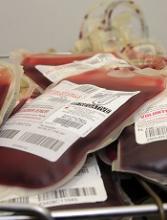The US Food and Drug Administration (FDA) has approved an additional use for the cobas Zika test.
The approval allows for the streamlined screening of multiple individual blood or plasma donations that have been pooled together.
The cobas Zika test is a qualitative in vitro nucleic acid screening test for the direct detection of Zika virus RNA in plasma specimens from blood donors.
The test is used with the cobas 6800/8800 systems, which are fully automated, high-volume systems that perform sample pooling, sample preparation (nucleic acid extraction and purification), and polymerase chain reaction amplification and detection.
Automated data management is performed by the cobas 6800/8800 software, which assigns a test result of non-reactive, reactive, or invalid.
Roche deployed the cobas Zika test in April 2016 under the FDA’s investigational new drug application protocol to screen blood donations collected in Puerto Rico.
This initial testing protocol enabled the reinstatement of blood services in Puerto Rico after concerns over high rates of Zika infection posed a threat to the blood supply.
The cobas Zika test received commercial approval from the FDA in October 2017, enabling routine use of the test to support individual donor screening efforts throughout Puerto Rico and the continental US.
“More than 6 million blood donations from the United States and Puerto Rico have been screened with the cobas Zika test since its initial release under the investigational new drug application protocol in 2016 and subsequent commercial approval in 2017,” said Uwe Oberlaender, head of Roche Molecular Diagnostics.


